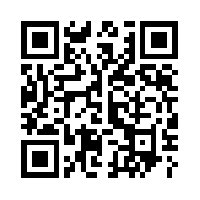Abstract
During the 20th century, the ‘subject’ of knowledge (i.e. the individual scientist or a scientific community) was attributed an increasingly relevant role in (the philosophy of) science. Anchoring scientific knowledge to the subject (rather than to the object, as in early positivism) was proposed as a ‘liberating’ move, leading to a less authoritarian and rationalistic view of science. This article provides a reformational point of view on the topic. A historical documentation of the shift to the subject is provided by visiting the philosophies of Popper, Kuhn, Collins and others. It is argued that the promise of a more libertarian or emancipating conception of science was challenged by several problems. In particular, the conflict between an individual and a communal understanding of the subject is highlighted. Furthermore, it is argued that the roots of the phenomenon in most cases remain hidden. An interpretation of the shift and the sketch of an alternative approach conclude the article.Copyright information
- Ownership of copyright in terms of the Work remains with the authors.
- The authors retain the non-exclusive right to do anything they wish with the Work, provided attribution is given to the place and detail of original publication, as set out in the official citation of the Work published in the journal. The retained right specifically includes the right to post the Work on the authors’ or their institutions’ websites or institutional repositories.
Publication and user license
- The authors grant the title owner and the publisher an irrevocable license and first right and perpetual subsequent right to (a) publish, reproduce, distribute, display and store the Work in any form/medium, (b) to translate the Work into other languages, create adaptations, summaries or extracts of the Work or other derivative works based on the Work and exercise all of the rights set forth in (a) above in such translations, adaptations, summaries, extracts and derivative works, (c) to license others to do any or all of the above, and (d) to register the Digital Object Identifier (DOI) for the Definitive Work.
- The authors acknowledge and accept the user licence under which the Work will be published as set out in https://creativecommons.org/licenses/by/4.0/ (Creative Commons Attribution License South Africa)
- The undersigned warrant that they have the authority to license these publication rights and that no portion of the copyright to the Work has been assigned or licensed previously to any other party.
Disclaimer: The publisher, editors and title owner accept no responsibility for any statement made or opinion expressed by any other person in this Work. Consequently, they will not be liable for any loss or damage sustained by any reader as a result of his or her action upon any statement or opinion in this Work.
In cases where a manuscript is NOT accepted for publication by the editorial board, the portions of this agreement regarding the publishing licensing shall be null and void and the authors will be free to submit this manuscript to any other publication for first publication.
Our copyright policies are author-friendly and protect the rights of our authors and publishing partners.

